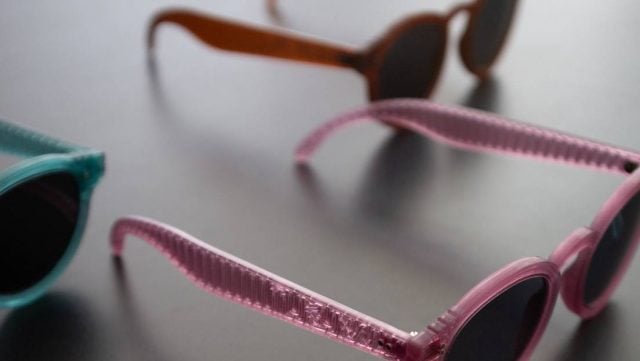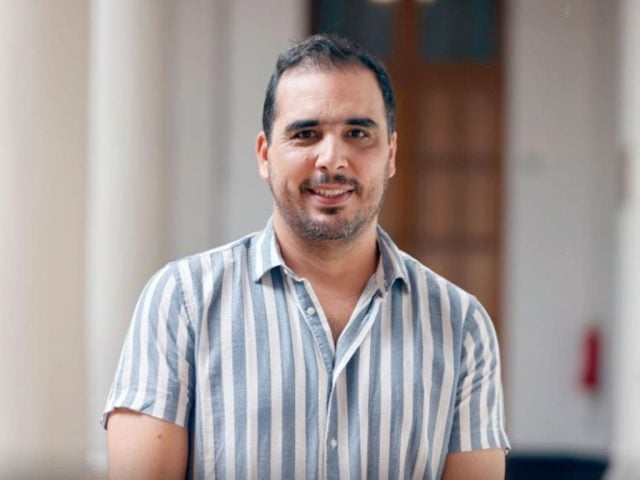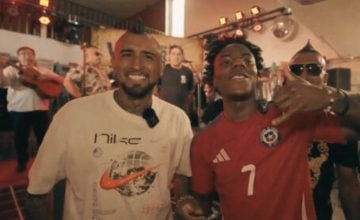According to estimates by the United Nations (UN), a million plastic drinking bottles are bought in the world every minute; These are mainly single-use products, which are then discarded and it’s most probable that they will not enter the recycling cycle.
The United Nations Environment Program (UNEP) points out that, like the rest of the plastic used on the planet, only 9% of those bottles are recycled.
In Ecuador, three entrepreneurs had the initiative to give a second use to the plastic bottles that are discarded. Now, they turn them into frames for glasses, both sunglasses and prescription glasses for people with visual health problems.
The venture, which is made up of Mariuxy Jaramillo, Philip Solvang Wright and Nantu Melo, is called ‘Tukuna‘, a Kichwa word which in Spanish means ‘to return’.
«That’s where our idea comes from, to return that bottle in another way. It comes back to life and now it’s a spectacle», says Jaramillo, in an interview with journalist Edgar Romero for RT.
Collaborative process based on recycling
The process to convert these plastic bottles into eyeglasses begins with the grassroots recyclers, people in charge of carrying out the activities of collection, separating and marketing waste for recycling in the streets.
«We buy the bottles directly from base recyclers and what they do for us (that’s why we pay extra) is to separate the labels, the caps and they also help us to remove the glue (to stick) that remains when the label is removed», details Wright.
Once they have the bottles without the labels, caps and rubber bands, they crush them in a machine made by themselves. The result is small pieces of plastic, in the shape of a flake.
The next step is to take these flakes to an «extruder», explains Wright, from which, with a temperature of about 300 degrees, the molten plastic comes out with a certain diameter, which is passed through water, where it immediately solidifies and the filament is produced.
That filament is used in the 3D printer that makes the glasses. The process on this machine takes about 40 minutes, explains Wright.
After the printer, comes a manual process, which includes sanding the product, so that it is smooth and shiny, as well as doing the assembly process, adding the rivets, hinges and everything necessary to make the product.
Regarding the color, these Tukuna glasses preserve that of the bottle, since in the process they do not add colorants or chemicals to change it. What they usually do is mix between the different tones that the waste gives them and they create their own colors. Wright points out that each spectacle has its own identity, because «the mix is never going to be perfect», which makes this product more striking.
This young man calculates that “a bottle, for half a liter, weighs around 22 grams and some glasses weigh around that too; then a bottle is a pair of glasses».
Many ideas, one product and recycling
At Tukuna they only work with polyethylene terephthalate, also known as PET plastic, which is generally used for the packaging of water, soft drinks or other substances for human consumption.
When they started, the goal of these entrepreneurs was to sell the filament; However, when consulting with their potential clients, they learned that they had to produce at least 1,000 kilograms per month to meet the demand and they did not have the capacity to do so.
So they made the decision to make their own products. “We started designing different things like flowerpots, toys, earrings, we even had a project to make prosthetics […] We tried many things with different degrees of success”, says Wright. However, during the pandemic they stopped production and, in search of generating something new, they finally opted for glasses.
In this way, the idea of creating the glasses occurred last year and in March 2021 they were established as a company, says Jaramillo.
The lenses are made by an optician
The only thing that Tukuna does not make are the crystals or lenses for the glasses. For that, they work with an optician that is in charge of adding them. The glasses can be only for the sun or they can also have prescription for those who have some vision problems.
«The only thing they tell us is color; hence how much is the measure, if they want them with blue-light protection, anti-reflection, photochromic, etc., it is with the optics «, explains Jaramillo.
He points out that, in contact with the opticians, they discovered that most of them import the frames for the lenses they sell. Therefore, Tukuna, in addition to becoming one of the very few that produces glasses in the country, is the only one that does so with 100% recycled material.
In addition to the recycling of the bottles, the cases where the glasses are sold or delivered in are made with waste from the textile industry. These are provided by other local businesses, Allpamamas and Remu.
Tukuna also has an agreement with the Ecuadorian Red Cross, which consists in that for every five eyeglasses they sell, they provide the frame for this institution to place the lenses, with graduations according to their visual need, and deliver those lenses to grassroots recyclers.
Last August, this venture won in the «Circular Economy» category of the Latin America Green Awards, where it competed with other projects from Colombia and Mexico.











